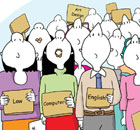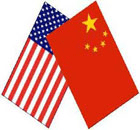Top Biz News
China to extend essential drugs program to more hospitals
(Xinhua)
Updated: 2010-01-06 13:43
 |
Large Medium Small |
Health Minister Chen Zhu said Tuesday the country would equip at least 60 percent of State-run grass-roots health institutions with essential drugs by the end of the year, compared to the current 30 percent.
Chinese Health Ministry last year issued a list of 307 essential drugs as part of its plan to create an essential medicine system in the coming 10 years to ensure people's access to essential drugs and cut their medical costs.
Essential medicines refer to those which satisfy the health care needs and are available to the public at all times in adequate amounts and in appropriate dosage forms, at a price the public can afford.
In China, due to longstanding low government funding for State-run hospitals, which in many places only covers 10 percent of operating costs, doctors often aggressively prescribe expensive, sometimes unnecessary medicines and treatment, in order to make profits for the hospital.
The implementation of essential medicines system has meant the price of certain prescription drugs would be reduced.
Under the 850 billion yuan ($124 billion) plan for 2009 to 2011, the government promised universal access to basic health insurance, introduction of an essential drug system, improved primary health care facilities, equitable access to basic public health services and pilot reform of State-run hospitals.
The budget is widely expected to be spent on subsidizing basic medical insurance programs, supporting grass-roots health facilities and in improving health care conditions in underdeveloped western and rural regions.













